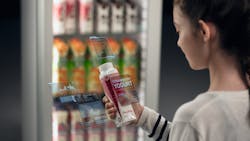Industry 4.0 and the Industrial Internet of Things (IIoT) have long been major stories from a technology development point of view and through increasing numbers of application examples at specific companies. At Hannover Messe this year, a new kind of development seemed to be on the rise—multi-company collaborations formed to bring these new connected-industry visions to life.
We’ve been seeing news of such multi-organization collaborations a lot more recently, a good example of which is the OPC UA with TSN down to the field level initiative. At Hannover Messe 2019, there was the announcement of an Open Industry 4.0 Alliance, which is designed to overcome the issue of difficult-to-connect proprietary automation communication systems. In essence, this alliance is similar to the Open Process Automation Forum in the U.S., but with a broader scope reaching across all industry verticals. The goal of the Open Industry 4.0 Alliance is to use existing standards, such as I/O Link, OPC UA, and RAMI (the architecture behind Industry 4.0) to connect every step from manufacturing to services. Current members include Balluff, Beckhoff, Endress+Hauser, Hilscher, ifm, Kuka, Pepperl+Fuchs, and SAP, among others.
Another multi-company collaboration on display at Hannover Messe 2019 involved Tetra Pak, ABB, Ericsson, Microsoft, SAP, XMReality, BillerudKorsnas, and Stora Enso in a partnership designed to connect the entire process from manufacturing and packaging to supply chain and recycling, according to Mattias Johansson, Tetra Pak’s Industry 4.0 integration director. He noted that Tetra Pak plans to consolidate all of these steps for its customers and provide one interface to it all.
Providing this scope of insight will enable food and beverage manufacturers to produce according to demand more effectively and give manufacturers better forecasting capabilities. “Ultimately, this will allow for dynamic pricing based on supply and demand,” Johansson said. “Businesses can use this insight to drive consumers toward certain products [through targeted incentives]."
The ability to connect these disparate operations is changing Tetra Pak's business model toward becoming an outcome-based contractor, Johannson added. This change is leading the company to increasingly work with customers to first define a business outcome and then earn its revenue based on achieving that outcome. Johannson said he can see the company eventually moving toward a model where customers pay us per each good package produced.
This outcome-based business model is beginning to gain traction in a number of industries—even the OEM machinery business. Read more here.
One component of Tetra Pak’s near-term vision of the packaging industry’s future centers on the launch of its connected packaging platform, which the company announced at Hannover Messe. Using a printed code capable of transmitting data or being scanned to provide information about the package’s location and its contents, this platform “will transform milk and juice cartons into interactive information channels, full-scale data carriers, and digital tools,” said Anders Andrén, Tetra Pak’s product manager for plant integration and automation. “For beverage producers, the new packaging platform will offer end-to-end traceability to improve production and quality control and provide supply chain transparency. It will have the ability to track and trace the history or location of any product, making it possible to monitor for market performance and any potential issues that may arise in the process.”
Tetra Pak said that it has successfully completed pilot tests of the new connected package platform with beverage, juice and milk-producing customers in Spain, Russia, China, the Dominican Republic and India.
In an example of how the technology can be used for tracking and tracing and to improve sales through targeted incentives, Tetra Pak noted that one of its test customers in Spain used the technology to increase sales by 16 percent by using the platform in a scan-and-win promotional campaign.
Another aspect of multi-company collaboration showcased by Tetra Pak at Hannover Messe centered on its work with ABB to create an energy assessment program to help food and beverage producers reduce their environmental impact and cut costs. According to Tetra Pak, the program is designed to provide “an assessment of the entire plant, helping customers minimize their environmental impact and maximize profitability. Based on this analysis, Tetra Pak will be able to provide recommendations for food producers on opportunities to reduce energy consumption and help them make informed decisions about how resources are used in their plants. Based on pilot projects of this program conducted in the Americas, carbon emissions and energy costs for food and beverage manufacturers can be reduced from 15 to 25 percent using these assessments.

